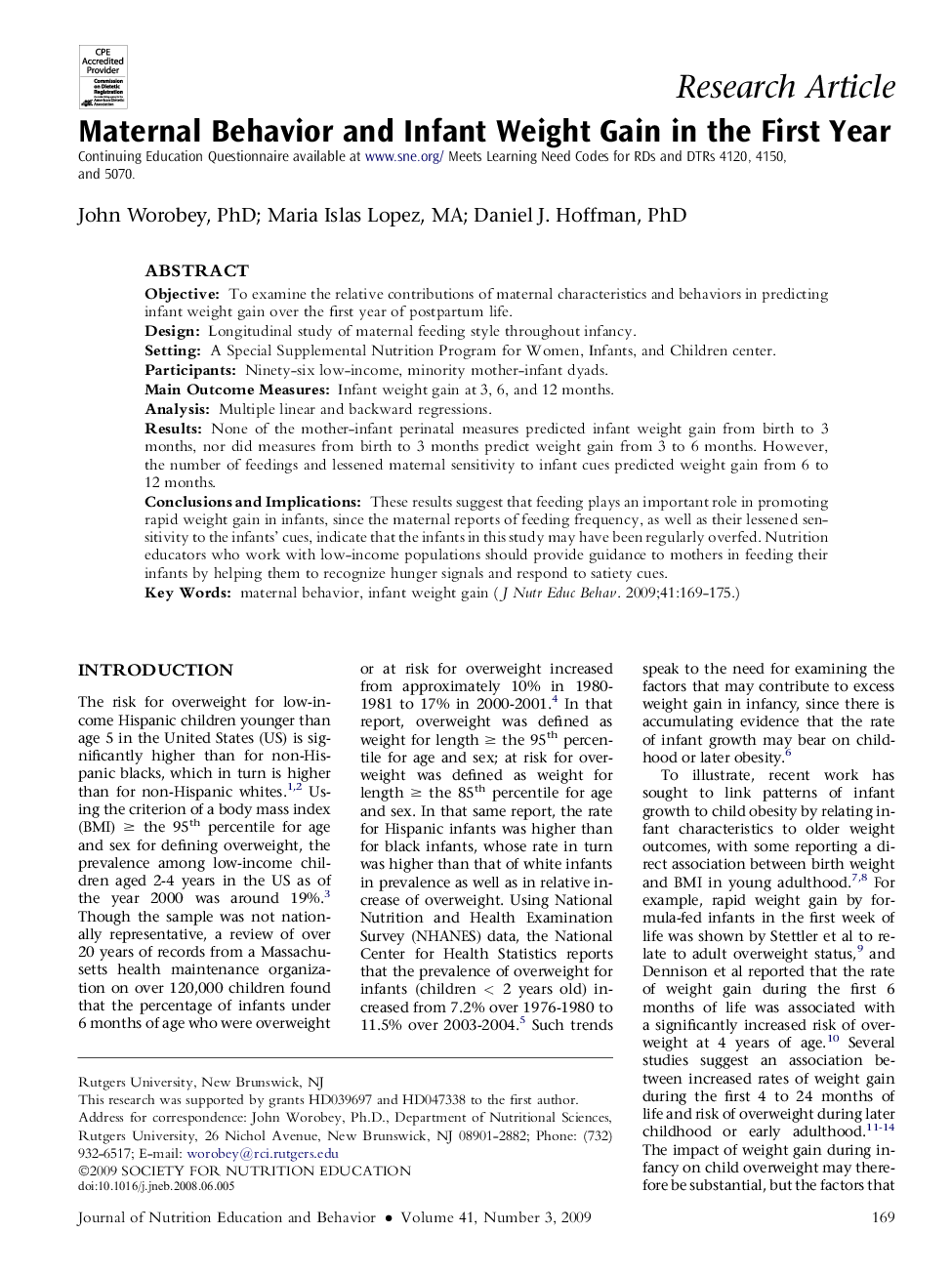| Article ID | Journal | Published Year | Pages | File Type |
|---|---|---|---|---|
| 363151 | Journal of Nutrition Education and Behavior | 2009 | 7 Pages |
ObjectiveTo examine the relative contributions of maternal characteristics and behaviors in predicting infant weight gain over the first year of postpartum life.DesignLongitudinal study of maternal feeding style throughout infancy.SettingA Special Supplemental Nutrition Program for Women, Infants, and Children center.ParticipantsNinety-six low-income, minority mother-infant dyads.Main Outcome MeasuresInfant weight gain at 3, 6, and 12 months.AnalysisMultiple linear and backward regressions.ResultsNone of the mother-infant perinatal measures predicted infant weight gain from birth to 3 months, nor did measures from birth to 3 months predict weight gain from 3 to 6 months. However, the number of feedings and lessened maternal sensitivity to infant cues predicted weight gain from 6 to 12 months.Conclusions and ImplicationsThese results suggest that feeding plays an important role in promoting rapid weight gain in infants, since the maternal reports of feeding frequency, as well as their lessened sensitivity to the infants' cues, indicate that the infants in this study may have been regularly overfed. Nutrition educators who work with low-income populations should provide guidance to mothers in feeding their infants by helping them to recognize hunger signals and respond to satiety cues.
